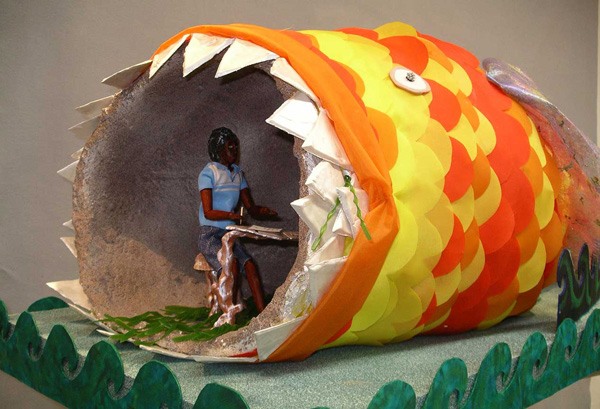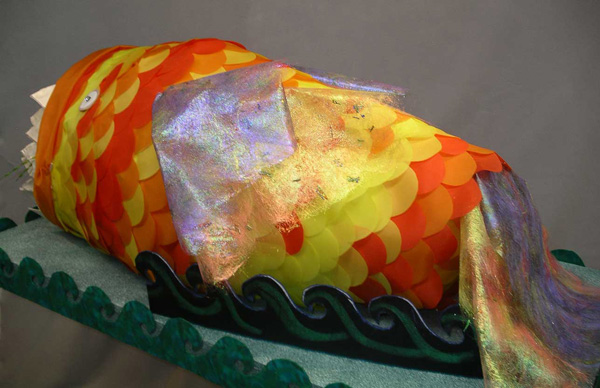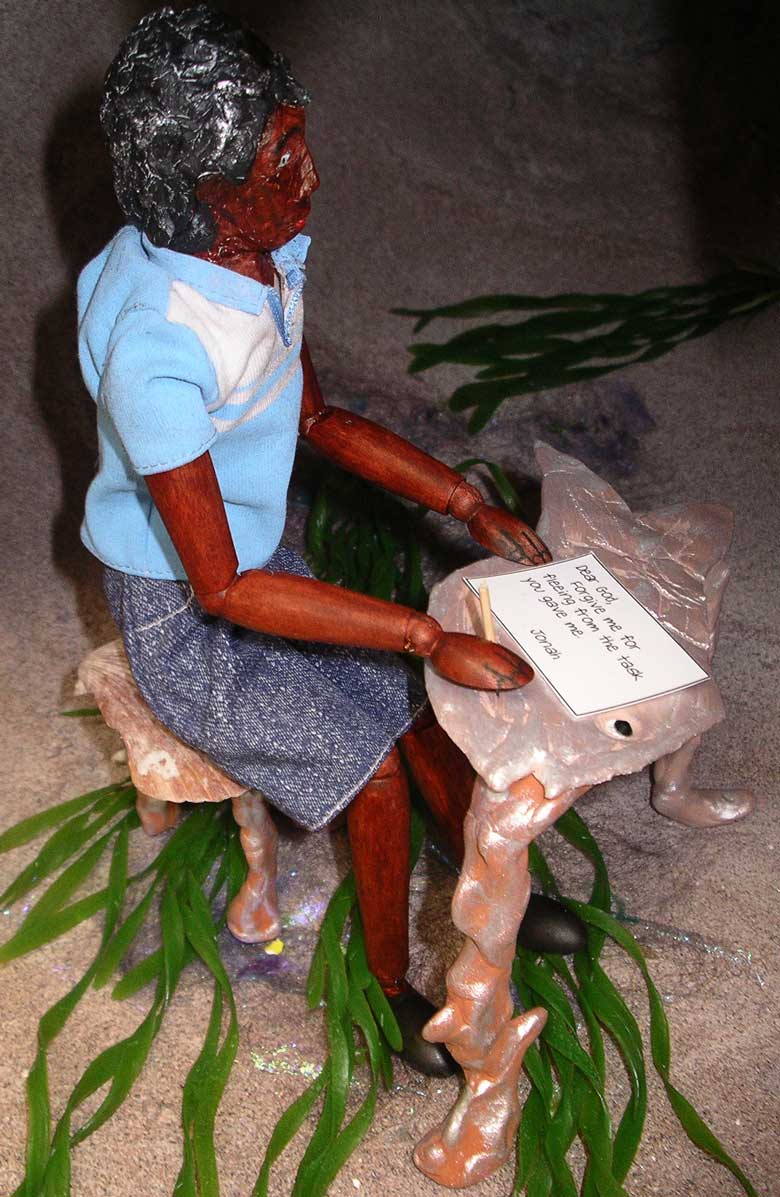FiberAlchemy.com
Jonah and the Big Fish
According to the story told in the Book of Jonah, G-d commands Jonah to go to Nineveh and tell the king and his people that they are leading wicked lives and must change their ways or they will be destroyed. Jonah doesn’t want to go—who would? He fears to speak Truth to Evil. He flees his task and G-d on a ship, which is soon beset by a terrible storm. After casting lots, to save themselves the sailors reluctantly throw Jonah overboard. “A great fish” (not a whale) swallows him. He survives three days and three nights in the belly of the beast, during which time he repents and begs forgiveness from G-d. G-d hears his prayers, and Jonah is spewed up on dry land. He goes to Nineveh, prophesizes the pending demise of the people if they do not change their ways. Much to his surprise, the people repent. Rather than being happy about this, Jonah is angry because it will look like he was wrong in his prophecy; G-d then teaches him a lesson about pity and the value of human life.
My image concentrates on Jonah in the belly of the beast, repenting. The tableau: from the outside, we see a pretty, whimsical fish, but on the inside, we see a dark, rough-sided cave. Jonah, dressed in modern clothes to indicate that he represents Everyman/woman, sits at an improvised table made out of coral and a dead fish. Jonah is writing a letter: “Dear God, Forgive me for fleeing from the task you gave me. Yours truly, Jonah.”
Questions are raised: Are you (the witness to the scene), like Jonah, afraid to speak Truth to Power? Is there some task that G-d has given you that you flee from? Where do you hide when you flee from you life’s task? What happens when you run away? What do you repent? Of what do you ask to be forgiven?
Far from being malign, the Big Fish shelters Jonah and gives him time to rethink his behavior. Sometimes we need to escape, to rest, to go inward into the darkness/the interior/the belly of the beast in order to see how we have fled from our true calling….


